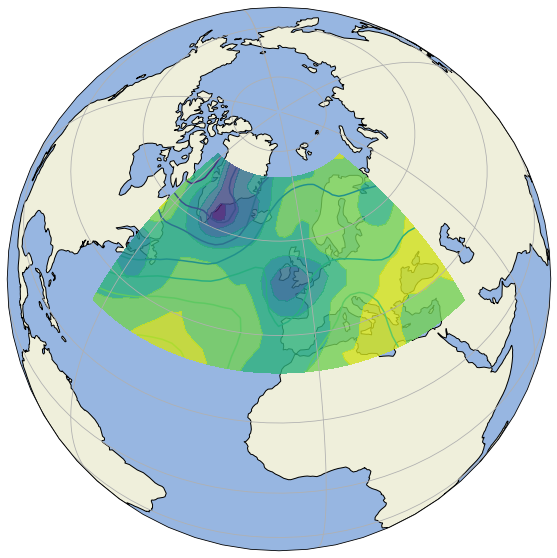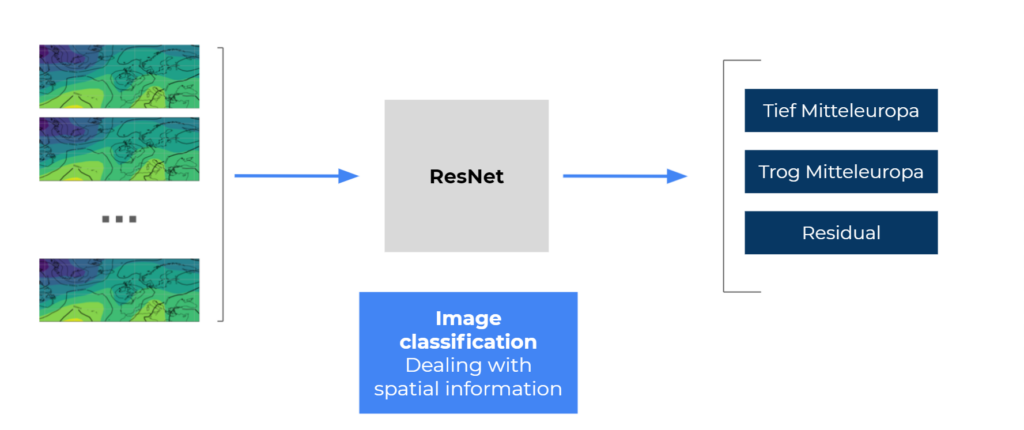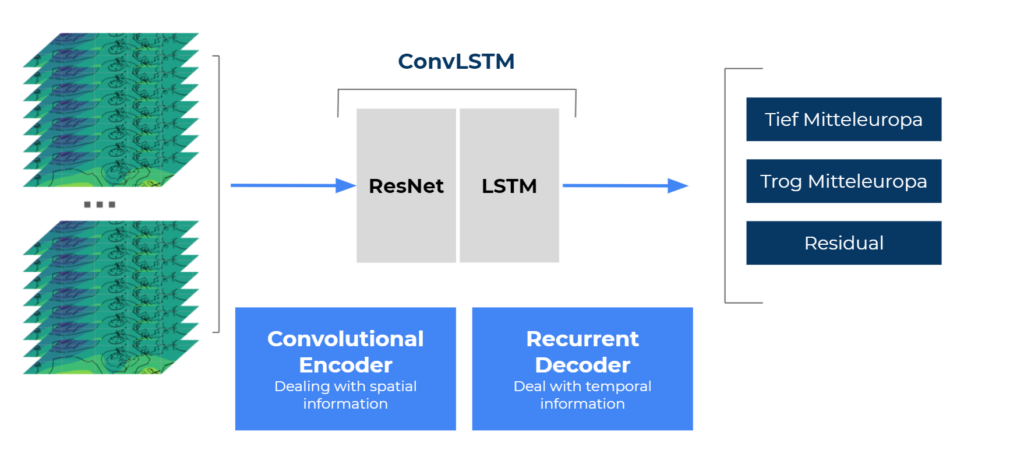Climate Change alters the atmospheric circulation over Europe and increases the risk of heavy precipitation. ‚Tief Mitteleuropa‘ and ‚Trog Mitteleuropa‘ are two atmospheric circulation patterns that are associated with heavy precipitation over Central Europe.

Thus the research question of how climate change influences their occurrence is of high relevance. However, the spatio-temporal data structure and the imbalanced classes demand for sophisticated modelling architectures in order to detect these circulation patterns in climate models. This project introduces and compares deep learning algorithms that are able to tackle the problem of detecting the two atmospheric circulation classes. A ResNet18 and a Convolutional LSTM are set up and fitted to the data.
Overall, both model types are generally able to detect the atmospheric circulation patterns and, moreover, carry immense potential in the way they can be set up and fitted to the data. These promising results open the gate for further research in the future.

ResNet18- Image Classification 
ConvLSTM- Video Classification
The model is embedded in an intuitive pipeline that includes modules for preprocessing, modelling and training in pytorch. This pipline is available as a pip-installable python package. The package can be downloaded from Github. In consequence, users are able to train their own weather models by one single command or exchange preprocessing, modelling and training steps in the pipeline by their own modules.

This summer, a short paper was published and presented at the EnviroInfo Conference 2021 in Berlin:Funk, H., Becker, C., Hofheinz, A., Xi, G., Zhang, Y., Pfisterer, F., Weigert, M., & Mittermeier, M. (forthcoming). Towards an automated classification of Hess & Brezowsky's atmospheric circulation patterns Tief and Trog Mitteleuropa using Deep Learning Methods. In Environmental Informatics: A bogeyman or saviour to achieve the UN Sustainable Development Goals?. Shaker.
Team: Carolin Becker, Henri Funk, Andreas Hofheinz, Guoren Xi, Yao Zhang
Betreuung: Florian Pfisterer, Christoph Molnar, Magdalena Mittermeier, Maximilian Weigert
Leitung des Innovationslabors: Prof. Dr. Thomas Seidl, Prof. Dr. Bernd Bischl
LMU Innovation Lab: https://innolab.ifi.lmu.de/

